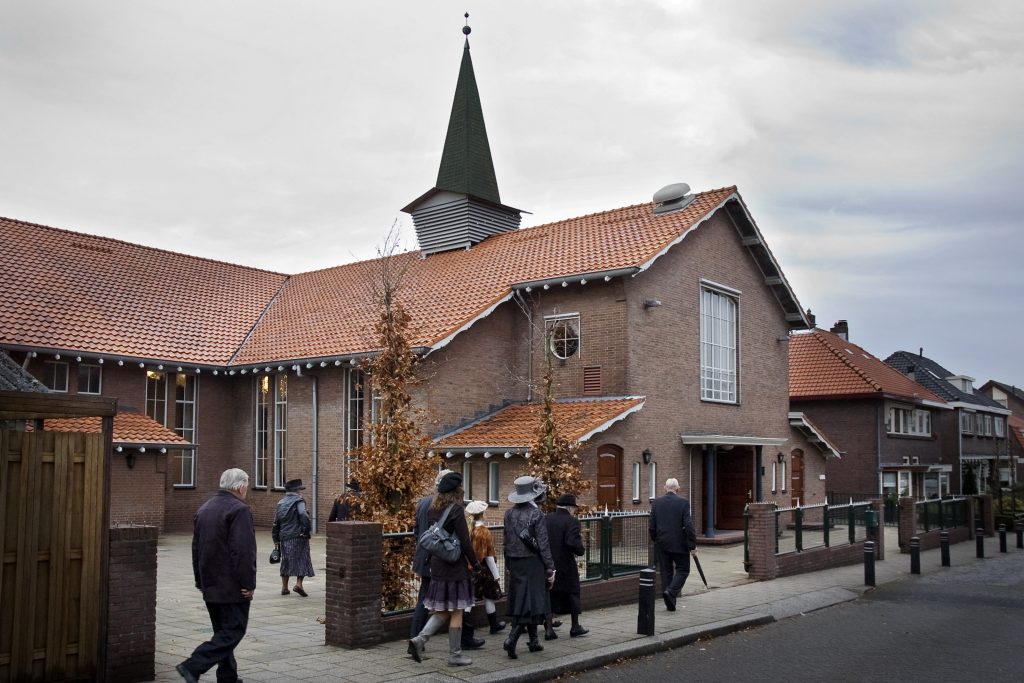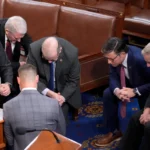Blog Post
The Dutch Nashville Statement exposes a huge rift between secularists and the Bible Belt
By Jonathon Van Maren
As I noted in my column last week, the media firestorm in the Netherlands surrounding the Dutch version of the Nashville Statement, a document reaffirming traditional Christian beliefs on sexuality and marriage, was interesting for several reasons—not the least of which is the fact that so many people seemed stunned by the presence of beliefs held by nearly everyone a mere half-century ago. (The Netherlands, it bears pointing out, was the first nation on earth to legalize same-sex marriage in 2001.)
The analysis of the firestorm by a wide range of Dutch commentators has also been fascinating. In de Volkskrant, Sander van Walsum noted that “in the fierce reactions to the Nashville statement there is something else: disbelief about the fact that there are orthodox Christians at all. In their self-chosen isolation they are largely invisible…to seculars. In addition, the secularists had long since settled with Christian orthodoxy. An entire generation of writers and artists had broken with a lot of noise with the faith of their fathers. More and more Dutch people grew up without any contact with religion or with the church. They no longer know the language of belief…and they wanted…orthodoxy to disappear.”
And that, says van Walsum, is one of the reasons that the backlash to the Nashville statement was so fierce: One segment of Dutch society was forced to recognize that another segment, which had “more or less been declared dead,” was decidedly not. Despite the fact that churches are closing across the Netherlands—two a week, by some estimates—these churches are nearly all the sort of liberal churches that hoisted the rainbow flag in response to the Nashville statement. The Social and Cultural Planning Office, in fact, noted that the remaining Dutch churches are increasingly young and orthodox, and up to 10% of people between 17 to 30 “can be classified as ‘highly orthodox.’” And despite the brief illusion in the Netherlands and elsewhere in Europe that secularism is ascendant, van Walsum noted glumly, nearly all of the global trends indicate otherwise.
The Economist also noted the rift exposed by the Nashville statement, with M. Erasmus writing that while the Netherlands is “famed for tolerance of all beliefs” (except, it seems, the Christian view of sexuality held by virtually the entire population a short time ago) “many would be surprised to know that the Netherlands has a Protestant Bible Belt. From Friesland in the north to Zeeland in the south, the country’s middle comprises towns where Sundays are silent…and pastors set rules in family life and politics.”
That is not quite the case, of course. Dutch pastors would chuckle heartily at the idea that they “set rules”—that is the purview of synod and Scripture—and the towns of the so-called Bible Belt are booming on Sunday. I’ve spent quite a few Sundays in the sorts of towns being referred to, and while it is true that most business establishments are closed, the sound of church bells clanging and the clamor of hundreds of people biking and walking to church are anything but “silent.”
What The Economist and de Volkskrant get right is that over the past week, “two Dutch worlds clashed.” The signers of the Nashville Statement, ironically, had not actually intended to send a message to the culture at large, and I was impressed that The Economist correctly noted that the intention of the signatories had been to provide clarity within the churches:
A bigger driver is confessional ferment amongst Dutch Protestants. Most of the pastors who signed the Nashville Statement hail from…ultra-conservative congregations which refused to join the consolidation of the Protestant Church of the Netherlands (PKN) in 2004. That fusion reunited the two main versions of Dutch Protestantism, the Dutch Reformed Church and the Reformed Churches in the Netherlands, which had been divided since the 19th century. The creation of the PKN in 2004 also took in the Netherlands’ smaller Lutheran churches. To accommodate the differences between these two forms of Protestant doctrine, the PKN had to embrace some theological freedom for member congregations. That was too much for a small minority of orthodox Calvinists, who split off to form the Restored Reformed Church (HHK). The mainstream PKN, with over 1M adherents; the stricter HHK has held steady.
There were several mistakes in The Economist’s analysis, most notably their theory that Kees van der Staaij of the SGP signed the Nashville Statement in order to outflank anti-immigration politicians like Geert Wilders on the Right, where several right-of-centre parties were competing for the same voting blocs. This is obviously not the case, as van der Staaij had not even been aware that his name had been added to the signatories until he was contacted by the media.
Much of the political turmoil in the Netherlands can be traced back much further, to when the Dutch churches began to collapse in the first place. As Dutch historian and journalist Geert Mak has pointed out, in 1958 about a quarter of Dutch people were churchless. Now, around half of the Dutch population is entirely atheist, with the Protestant churches being reduced to 10% of the population and Catholics down to 17%. This collapse of the churches, in turn, brought about the implosion of the “Polder Model,” which Mak describes this way:
The Netherlands was formerly intensely religious and, because of the socio-political ‘pillar’ system it had, political contradictions largely coincided with religious or ideological divides.
Not just politics, but social life was divided this way too. In the small provincial town I grew up in, I went to a Protestant school – the newspaper, the university where my brothers studied, the football club, the scouts, the baker and the milkman were Protestant too. Even the leaves on the trees were, I sometimes thought. The world of my uncle, who was a socialist and taught at the local state school, looked the same, only he bought his bread at the socialist co-op, and the leaves on the trees looked slightly different to him too.
Yet, there was no problem ruling the country. The elites at the top of the pillars made continual compromises with each other. Such was the tradition of what is called the Polder Model. The system as a whole functioned as a very effective pacification machine in this religiously divided country. And, at the same time, created a national community which seemed much more tolerant than it really was, because people simply looked away from each other.
The collapse of the churches, Mak noted, brought about chaos that the Netherlands is still working through:
With that, the foundation has disappeared. Since the seventies, many of the old political parties have been abolished or merged, but only now are the consequences of secularization having an impact on political culture.
The Polder Model may be gone, but the orthodox Reformed communities are not. The secular majority has ignored both Dutch Christians and the Bible Belt for a long time—for so long that it appears that they forgot what those Christians believe, and indeed have always believed. As the Dutch government’s data indicates, these communities are not going anywhere. Perhaps it is time for the secularists to refamiliarize themselves with the heritage they have lost and embrace the diversity they claim to believe in so fervently.
____________________________________
For anyone interested, my book on The Culture War, which analyzes the journey our culture has taken from the way it was to the way it is and examines the Sexual Revolution, hook-up culture, the rise of the porn plague, abortion, commodity culture, euthanasia, and the gay rights movement, is available for sale here.








